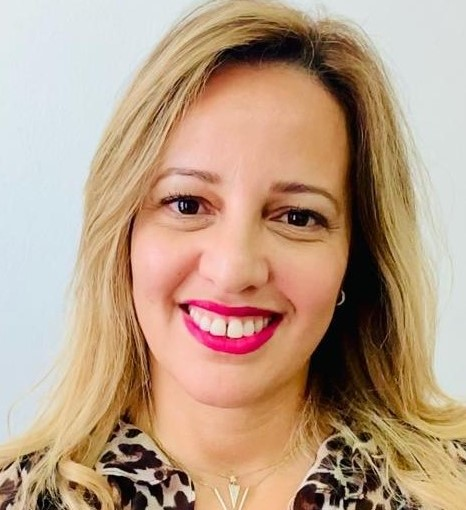General chairs
Prof. Rachid Benhida
UM6P, Morocco

Prof. Rachid Benhida
UM6P, Morocco
Pr. BENHIDA is the program lead of CBS department. He co-directed the Nice Institute of Chemistry from 2008 to 2016 and currently heads the Chemistry of Bioactive Molecules team. He obtained his doctorate at the University of Paris XI, Orsay, after research work carried out at the Institute of Chemistry of Natural Substances in Gif sur Yvette, the ICSN. R. BENHIDA is a full member of the National Academy of Pharmacy, Co-founder and President of the Moroccan Society of Chemistry (SMCT). He is strongly involved in the promotion of research-entrepreneurship as well as in the transmission of knowledge-teaching at the international level. This work takes place mainly in the chemical and biochemical sciences, at the interfaces of several disciplines, relying on international collaborations
Prof. Robert Guillaumont
Academy of Sciences, Coped, France

Scientific Committee
Prof. Robert Guillaumont
Academy of Sciences, Coped, France

Prof. Pierre Auger
Academy of Sciences, Coped, France

Prof. Pierre Auger
Academy of Sciences, Coped, France
Pierre Auger est Directeur de Recherche émérite à l’Institut de Recherche pour le Développement (IRD). Pierre Auger est membre de l’Académie des Sciences de France dans la section de biologie intégrative. Il est président depuis 2017 du Comité pour les Pays en Développement (COPED) de l’Académie des Sciences.
Le domaine de recherche de Pierre Auger concerne la modélisation mathématique des systèmes biologiques. Le travail de recherche de Pierre Auger a consisté à développer des méthodes mathématiques originales fondées sur l'existence de plusieurs échelles de temps associées aux processus se déroulant dans les différents niveaux d'organisation des systèmes biologiques pour construire un modèle réduit. Il s'agit pour l'essentiel de méthodes d'agrégation de variables dans les systèmes dynamiques. Les modèles “agrégés” constituent un outil efficace pour étudier les interactions entre niveaux d’organisation et les phénomènes d’émergence et touvent de nombreuses applications en dynamique des populations et en écologie.
En collaboration avec l’Institut national de recherche halieutique au Maroc (INRH), Pierre Auger a modélisé la dynamique des pêcheries de sardines sur la façade Atlantique du Maroc. Lors de son expatriation au Sénégal, il a également travaillé en collaboration avec le CRODT (Centre de Recherche Océanographique de Dakar-Thiaroye) à la modélisation des pêcheries de « thiofs » qui est une espèce de mérou sur-exploitée au Sénégal. Pierre Auger s’est particulièrement intéressé au développement de nouveaux modèles bio-économiques de pêche prenant en compte la variation du prix de la ressource sur le marché sous l’effet de l’offre et de la demande. Il a montré avec son équipe que la dynamique de prix pouvait conduite à la sur-exploitation des espèces allant même jusqu’à la disparition totale du stock avec une pêche intensive jusqu’au dernier poisson résultant d’un prix ne cessant d’augmenter sur le marché. Il a contribué à la modélisation des effets de divers dispositifs comme les aires marines protégées et les récifs artificiels sur la dynamique globale d’une pêcherie permettant d’éviter une situation de sur-exploitation en mettant en place une pêcherie durable.
Pierre Auger a récemment contribué à la modélisation mathématique en épidémiologie plus particulièrement sur les effets des mesures de protection non pharmaceutiques et de confinement sur la dynamique de l’épidémie de Covid-19. Il a montré avec son équipe les conditions permettant de générer un effet « Allee » permettant de provoquer la disparition de l’épidémie.
Prof. Rachid Benhida
UM6P, Morocco

Prof. Rachid Benhida
UM6P, Morocco
Pr. BENHIDA is the program lead of CBS department. He co-directed the Nice Institute of Chemistry from 2008 to 2016 and currently heads the Chemistry of Bioactive Molecules team. He obtained his doctorate at the University of Paris XI, Orsay, after research work carried out at the Institute of Chemistry of Natural Substances in Gif sur Yvette, the ICSN. R. BENHIDA is a full member of the National Academy of Pharmacy, Co-founder and President of the Moroccan Society of Chemistry (SMCT). He is strongly involved in the promotion of research-entrepreneurship as well as in the transmission of knowledge-teaching at the international level. This work takes place mainly in the chemical and biochemical sciences, at the interfaces of several disciplines, relying on international collaborations
Prof. Christian Amatore
Academy of Sciences, Coped, France

Prof. Christian Amatore
Academy of Sciences, Coped, France
Christian Amatore, 72, is Emeritus Professor of CNRS and ENS and Outstanding Professor of Xiamen University, China. He obtained his Habilitation in University Paris Diderot under Prof Saveant’s guidance before moving to the University of Indiana at Bloomington. He returned to France to CNRS and ENS where he held the former position of Louis Pasteur. He is Member of the French Academy of Sciences, Member of the Academia Europaea, Member of The Third World Academy of Sciences, Foreign Member of the Chinese Academy of Sciences, of the Brazilian Academy of Sciences, and of the Portuguese Academy of Sciences, Honorary Fellow of The Royal Society of Chemistry and of the Chinese Chemical Society, Honorary Member of the Israeli Chemical Society, Distinguished Scientist of the French Chemical Society and Fellow of ISE and ECS. He served as vice-President and President of ISE and was one of the twenty members of the French High Council of Science and Technology, which advised the Presidents of the French Republic. He has been Knighted by the French Republic in the Orders of Merits and of Legion d’Honneur and as Commander of the Order of Academic Palms. He received many important national and international awards and medals among which the Gold Medal of the International Society of Electrochemistry, the Electrochemical Society Plenary Lecturer award, the de Broglie Award from the Lincei, the Nanqiang award from Xiamen University, the Faraday Medal from the Royal Society of Chemistry and the Lavoisier Medal from the French Chemical Society.
He published 516 primary publications in top international journals with peer-review accumulating more than 29,000 citations and corresponding to a h-index of 88 (ISI - Web of Knowledge) or more than 37,000 citations and a h-index of 99 (Google Scholar) with an average citations rate larger than 1 250 per year (ISI-WS) or 1 700 (GS) over the past 10 years.
Prof. Patrice Simon
Academy of Sciences, Coped, France
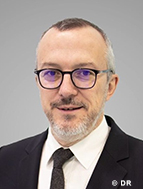
Prof. Abdelhaq El Jai
Perpignan University, France
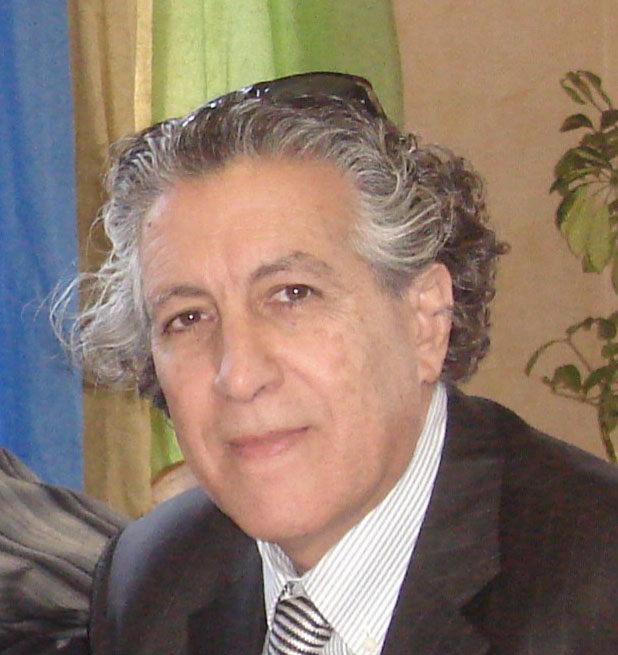
Prof. Said Laassiri
UM6P, Morocco

Prof. Said Laassiri
UM6P, Morocco
Dr. Said Laassiri is currently an assistant professor in Heterogenous Catalysis at Chemical & Biochemical Sciences. Green Process Engineering (CBS) Department at Mohammed VI Polytechnic University , Morocco. His current research focuses on the domain of heterogeneous catalysis with a particular emphasis on the elucidation of structure-catalytic activity relationship. The underlying theme is the development of alternative materials (e.g. mixed oxides, nitrides and carbides) as novel catalytic materials with applications in a variety of catalyzed reactions (oxidation reactions, methanation reaction, ammonia synthesis...etc).
Dr, Said Laasssiri graduated with an MSci degree in Chemistry & Chemical Sciences at the University of Poitiers, France in 2009. He carried out his Ph.D. co-jointly at the University of Laval in Quebec – Canada and the University of Poitiers in France. His Ph.D work involved the investigation of structure- redox properties - catalytic activity relationship in oxidation reaction catalysed by hexaaluminate and perovskite mixed oxide (graduation in 2014). Following his Ph.D., Dr. Said Laassiri joined, he joined the School of Chemistry at the University of Glasgow (UK) working with Pr. J.S.J. Hargreaves as research associate on the catalytic synthesis of ammonia. In 2018, he was awarded “Make our planet great again” grant to develop Chemical looping approach for ammonia generation at ambient conditions at the university of Lille. In 2020, Dr, Said Laassiri joined Mohammed VI Polytechnic University as an Assistant Professor in Heterogenous Catalysis
Prof. Driss Stitou
Perpignan University, France

Prof. Driss Stitou
Perpignan University, France
Driss Stitou est Ingénieur civil des Mines Alès 1989, Docteur en Energétique et Génie des Procédés de l’Université de Perpignan 1995 et Habilité à diriger des recherche 2013. Il est actuellement chercheur au laboratoire des Procédés, Matériaux et Énergie solaire (CNRS-PROMES) qu’il a rejoint en 1995 et où il a dirigé le groupe de recherche Thermodynamique, Énergétique et Systèmes de 2013 à 2020. Ses principales activités de recherche portent sur le développement de nouveaux concepts de procédés énergétiques pour des applications autonomes de stockage/production de froid et de dessalement/potabilisation d’eau exploitant l’énergie solaire thermique basse température, et développe des outils d’analyse et d’évaluation thermodynamique des procédés pour la minimisation des impacts environnementaux induits par la transformation ou la conversion de l'énergie. (https://www.researchgate.net/profile/Driss-Stitou)
Prof. Gilney Damm
Gustave Eiffel University, Paris

Prof. Gilney Damm
Gustave Eiffel University, Paris
Gilney Damm
Gilney Damm is Senior Research Scientist (Directeur de Recherche) at Univ. Gustave Eiffel, at COSYS-IMSE Laboratory. Previously he was an Associate Professor at the Paris-Saclay University, CentraleSupelec, France.
He is an Electronic and Automatic Control Engineer from the Rio de Janeiro Federal University – Brazil, and PhD et HDR from CentraleSupelec - Paris-Saclay University. His research interests concern nonlinear and adaptive control applied to power systems (SmartGrids, SuperGrid, MicroGrids). His main applications are in the field of large-scale integration of renewable energy and electric vehicles; Multi-Terminal HVDC systems; Mixed AC/DC MicroGrids; Control of Power Systems and Power Electronics in high and low voltage, AC and DC.
He has a large experience as a coordinator or Work-Package Leader in several European and French research projects, particularly the Institutes for Energy Transition Vedecom (on dynamic inductive charging of electric vehicles), SuperGrid (on large-scale high voltage electrical grids), and Efficacity (on MicroGrids and SmartCities).
He has been a member of the IFAC Technical Committee TC 6.3 Power and Energy Systems since 2015. He has been an Associate Editor from the European Journal of Control since 2010 and Energies since 2020.
Prof. Sandrine Michel
Montpellier University, France

Prof. Sandrine Michel
Montpellier University, France
Sandrine Michel est économiste, Professeur à l'Université de Montpellier (France)
Ses recherches en macroéconomie historique quantitative portent sur la croissance économique à long terme. Elle s'est d'abord intéressée aux pays développés, puis aux pays en développement.
La croissance démographique en Afrique accélère les interrogations sur les conditions de la croissance et introduit des défis structurels majeurs pour accroître l'activité et l'emploi, en particulier dans les zones rurales. C'est dans ce contexte qu'elle s'est intéressée à l'accès à l'électricité. A partir d’une modélisation en panel, elle travaille sur les effets des tarifications de l’électricité, aussi bien résidentielles que d’activité, aussi bien en zones urbaines qu’en zones rurales, quel que soit le type de solutions techniques permettant l’accès.
Prof. Arona Diedhiou
Grenoble Alpes University, France
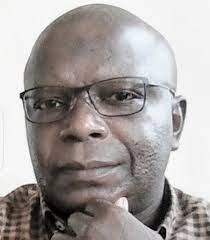
Organization Committee
Prof. Rachid Benhida
UM6P, Morocco

Prof. Rachid Benhida
UM6P, Morocco
Pr. BENHIDA is the program lead of CBS department. He co-directed the Nice Institute of Chemistry from 2008 to 2016 and currently heads the Chemistry of Bioactive Molecules team. He obtained his doctorate at the University of Paris XI, Orsay, after research work carried out at the Institute of Chemistry of Natural Substances in Gif sur Yvette, the ICSN. R. BENHIDA is a full member of the National Academy of Pharmacy, Co-founder and President of the Moroccan Society of Chemistry (SMCT). He is strongly involved in the promotion of research-entrepreneurship as well as in the transmission of knowledge-teaching at the international level. This work takes place mainly in the chemical and biochemical sciences, at the interfaces of several disciplines, relying on international collaborations
Prof. Said Laassiri
UM6P, Morocco

Prof. Said Laassiri
UM6P, Morocco
Dr. Said Laassiri is currently an assistant professor in Heterogenous Catalysis at Chemical & Biochemical Sciences. Green Process Engineering (CBS) Department at Mohammed VI Polytechnic University , Morocco. His current research focuses on the domain of heterogeneous catalysis with a particular emphasis on the elucidation of structure-catalytic activity relationship. The underlying theme is the development of alternative materials (e.g. mixed oxides, nitrides and carbides) as novel catalytic materials with applications in a variety of catalyzed reactions (oxidation reactions, methanation reaction, ammonia synthesis...etc).
Dr, Said Laasssiri graduated with an MSci degree in Chemistry & Chemical Sciences at the University of Poitiers, France in 2009. He carried out his Ph.D. co-jointly at the University of Laval in Quebec – Canada and the University of Poitiers in France. His Ph.D work involved the investigation of structure- redox properties - catalytic activity relationship in oxidation reaction catalysed by hexaaluminate and perovskite mixed oxide (graduation in 2014). Following his Ph.D., Dr. Said Laassiri joined, he joined the School of Chemistry at the University of Glasgow (UK) working with Pr. J.S.J. Hargreaves as research associate on the catalytic synthesis of ammonia. In 2018, he was awarded “Make our planet great again” grant to develop Chemical looping approach for ammonia generation at ambient conditions at the university of Lille. In 2020, Dr, Said Laassiri joined Mohammed VI Polytechnic University as an Assistant Professor in Heterogenous Catalysis
Prof. Khaoula Khaless
UM6P, Morocco
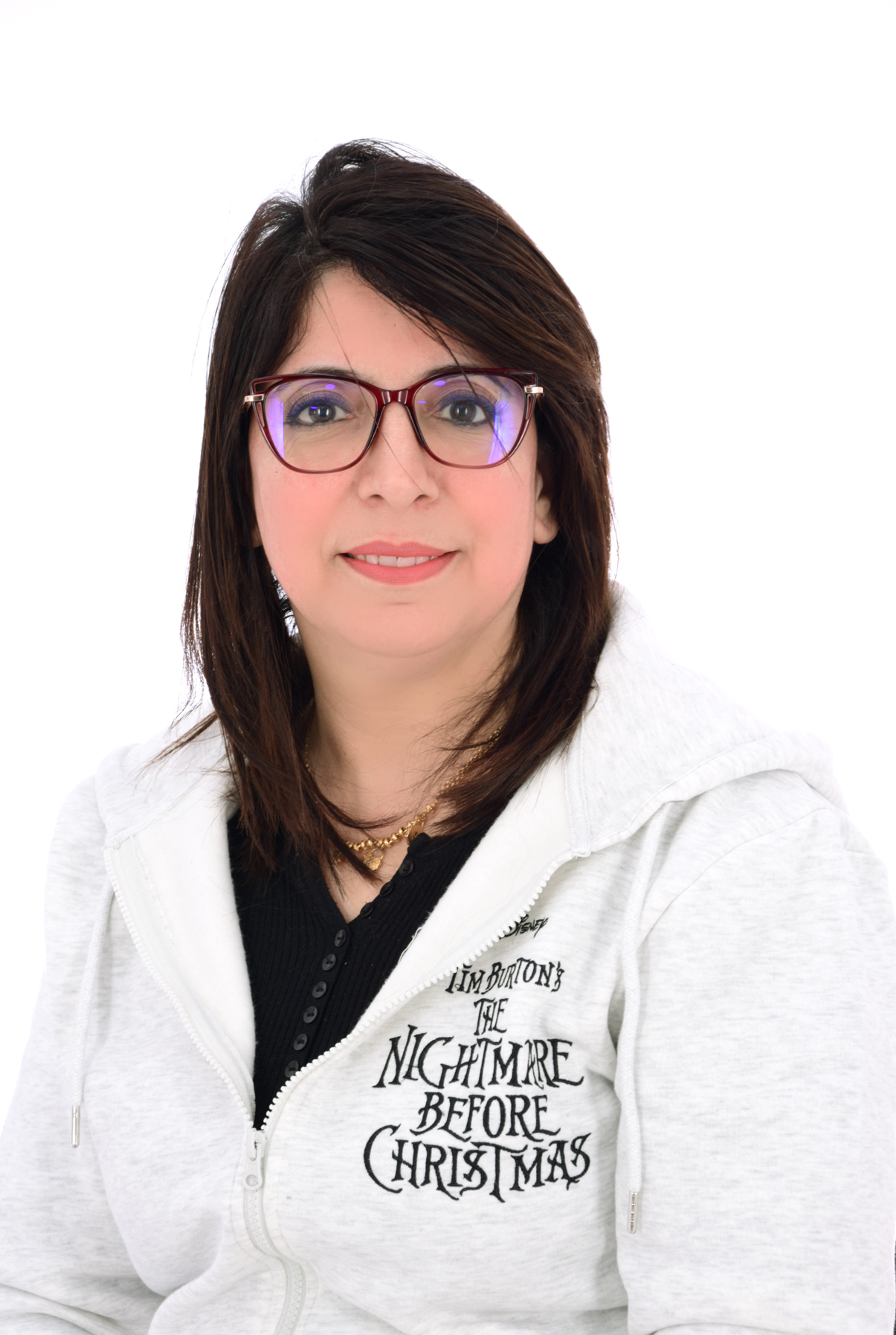
Prof. Khaoula Khaless
UM6P, Morocco
Khaoula Khaless holds a PhD in chemistry from the University of Rennes 1, obtained in 2006. She has fifteen years of experience in research project management. She now occupies the position of associate professor in CBS department. Before joining UM6P, she occupied the position of Engineer/Analyst, in “Acid, Process and separation Technologies” Unit, in the R&D Department OCP Group, El Jadida
She is specialist in membrane separation process and their application in the phosphate industry and its derivatives. Her research is mainly focused on phosphoric acid, desalination, phosphogypsum, trace elements, rare earths, new products, water, separation technologies and process in different industrial sectors, in particular the purification and treatment of phosphoric acid.
She has published numerous scientific articles, international patents, and book chapters on these subjects. Since 2021, she has held the position of president of the research commission at CEDoc – CRC, dedicated to obtaining the academic authorization (HU) or authorization to supervise research. Furthermore, she serves as the principal investigator (PI) and Co-principal investigator (Co-PI) in several industrial and academic projects.
Prof. Robert Guillaumont
Academy of Sciences, Coped, France

Prof. Pierre Auger
Academy of Sciences, Coped, France

Prof. Pierre Auger
Academy of Sciences, Coped, France
Pierre Auger est Directeur de Recherche émérite à l’Institut de Recherche pour le Développement (IRD). Pierre Auger est membre de l’Académie des Sciences de France dans la section de biologie intégrative. Il est président depuis 2017 du Comité pour les Pays en Développement (COPED) de l’Académie des Sciences.
Le domaine de recherche de Pierre Auger concerne la modélisation mathématique des systèmes biologiques. Le travail de recherche de Pierre Auger a consisté à développer des méthodes mathématiques originales fondées sur l'existence de plusieurs échelles de temps associées aux processus se déroulant dans les différents niveaux d'organisation des systèmes biologiques pour construire un modèle réduit. Il s'agit pour l'essentiel de méthodes d'agrégation de variables dans les systèmes dynamiques. Les modèles “agrégés” constituent un outil efficace pour étudier les interactions entre niveaux d’organisation et les phénomènes d’émergence et touvent de nombreuses applications en dynamique des populations et en écologie.
En collaboration avec l’Institut national de recherche halieutique au Maroc (INRH), Pierre Auger a modélisé la dynamique des pêcheries de sardines sur la façade Atlantique du Maroc. Lors de son expatriation au Sénégal, il a également travaillé en collaboration avec le CRODT (Centre de Recherche Océanographique de Dakar-Thiaroye) à la modélisation des pêcheries de « thiofs » qui est une espèce de mérou sur-exploitée au Sénégal. Pierre Auger s’est particulièrement intéressé au développement de nouveaux modèles bio-économiques de pêche prenant en compte la variation du prix de la ressource sur le marché sous l’effet de l’offre et de la demande. Il a montré avec son équipe que la dynamique de prix pouvait conduite à la sur-exploitation des espèces allant même jusqu’à la disparition totale du stock avec une pêche intensive jusqu’au dernier poisson résultant d’un prix ne cessant d’augmenter sur le marché. Il a contribué à la modélisation des effets de divers dispositifs comme les aires marines protégées et les récifs artificiels sur la dynamique globale d’une pêcherie permettant d’éviter une situation de sur-exploitation en mettant en place une pêcherie durable.
Pierre Auger a récemment contribué à la modélisation mathématique en épidémiologie plus particulièrement sur les effets des mesures de protection non pharmaceutiques et de confinement sur la dynamique de l’épidémie de Covid-19. Il a montré avec son équipe les conditions permettant de générer un effet « Allee » permettant de provoquer la disparition de l’épidémie.


